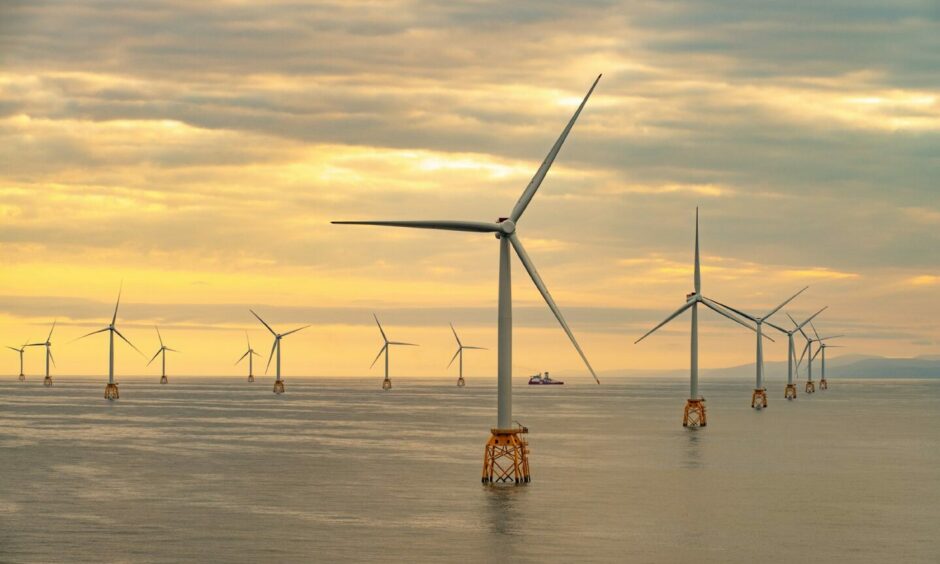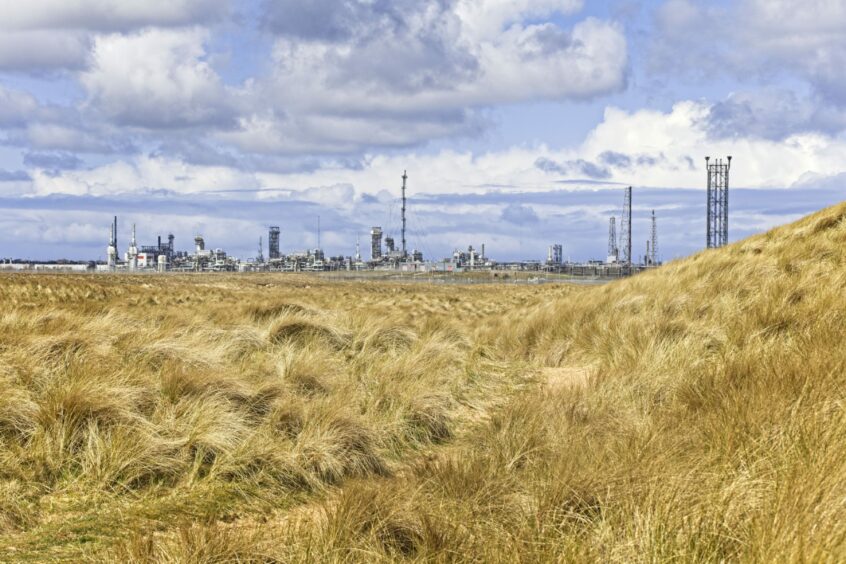Scotland is one of the leading countries in the world when it comes to the growth and potential of our energy sector in leading the transition to net-zero.
We have set ambitious targets of achieving net-zero emissions by 2045, five years ahead of the UK target.
To achieve this, we are told Scotland needs to transition from fossil fuels and replace them with clean energy sources like wind, solar and hydrogen.
There is a lot of potential in these new energies but transitioning to a green energy sector is not an easy task.
Importance of just transition plan
It requires significant investment, infrastructural changes and, most importantly, a just transition.
A just transition is a plan for transitioning to a low-carbon economy that is fair, equitable and ensures nobody is left behind.
It is a process that aims to minimise the social and economic costs of transitioning to a low-carbon economy.
A just transition recognises the shift to a green energy system is challenging, and aims to ensure the costs and benefits are distributed fairly across society.
The importance of a just transition for the energy sector in Scotland cannot be overstated; 80% of our current energy mix continues to come from fossil fuels.
The shift to a low-carbon economy has the potential to create significant economic opportunities, such as creating new jobs, driving innovation, and reducing energy bills.
However, if the transition is not managed adequately, it could also have negative social and economic impacts on communities that are reliant on fossil fuel industries, leading to job losses and economic disruption.
Oil and gas transition
North Sea oil and gas has been a significant contributor to the Scottish economy for decades.
The industry employs thousands of people, and its supply chain supports many other businesses in the country.
A just transition is, therefore. crucial to ensuring the transition to a low-carbon economy does not leave communities behind.
It must be recognised the energy transition will disproportionately affect some regions and communities, compared to others.
Policy initiatives and support mechanisms must, therefore, be designed to address any potential negative impacts.
Our 2023 #BusinessOutlook report highlights that the UK, and our industry need a fair, balanced, long-term and predictable fiscal environment so we can manage our companies, maintain our workforces and provide energy for the nation.
📖 https://t.co/SbXTAfo0Ne pic.twitter.com/mT6cEEtFD2
— Offshore Energies UK (@OEUK_) April 5, 2023
This should include providing reskilling and training opportunities for workers in fossil fuel-related businesses, developing regional development plans, and supporting new industries and technologies that provide alternative employment opportunities.
A challenge for these communities comes from a mix of windfall taxes and political uncertainty which is driving away the billions of pounds of investments needed to maintain oil and gas production now and create low-carbon energy in the future.
That’s according to Offshore Energies UK’s latest Business Outlook report which indicates that nine out of 10 North Sea operators are cutting back on investment.
The companies cite a mix of high taxes and political uncertainty as key factors in their decisions.
Making just transition affordable
Another significant challenge in transitioning to a low-carbon economy is ensuring energy is affordable for households and businesses.
A just transition must ensure the costs of transitioning to renewable energy sources are not passed on to consumers in the form of higher energy bills.
This can be achieved through targeted support for low income households, small and medium-sized enterprises and the development of affordable renewable energy technologies.
A just transition is also essential to ensure the benefits of transitioning to a low-carbon economy are distributed equally across society.
Development of renewable energy sources has the potential to create new jobs, drive innovation and contribute to economic growth.
But if the benefits of these developments are limited to a small section of society, this will undermine the principles of a just transition.
Acorn carbon capture
One of the policy initiatives that is ready to go is the unlocking of carbon capture.
The chancellor’s confirmation of a £20 billion government support package for carbon capture storage is welcome.
But there is a lack of clarity on whether the north-east’s Acorn scheme will be backed.
Providing detail now is essential if we are to achieve the UK’s ambitions for net-zero and decarbonisation.
In summary, a just transition is crucial for the energy sector in Scotland to ensure the transition to a low-carbon economy is fair, equitable and inclusive.
It must address the potential negative impacts of the transition on businesses and communities, while ensuring energy is affordable for households and businesses, and that benefits are distributed across society.
A just transition is crucial for achieving Scotland’s ambitious climate targets, while boosting economic growth and ensuring a sustainable future for all.
The Scottish Government’s just transition plan has a lot to live up to.




Conversation